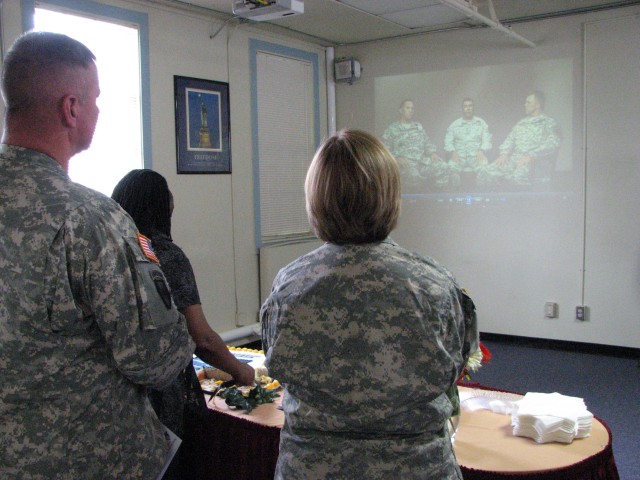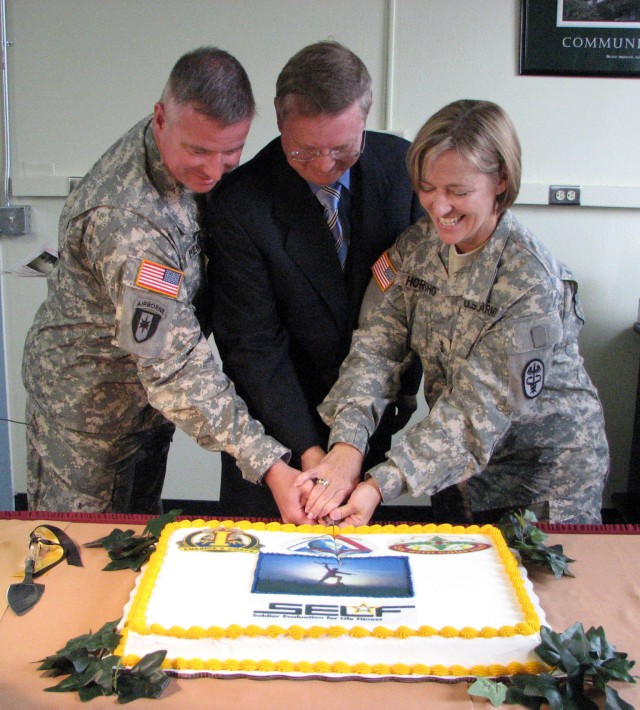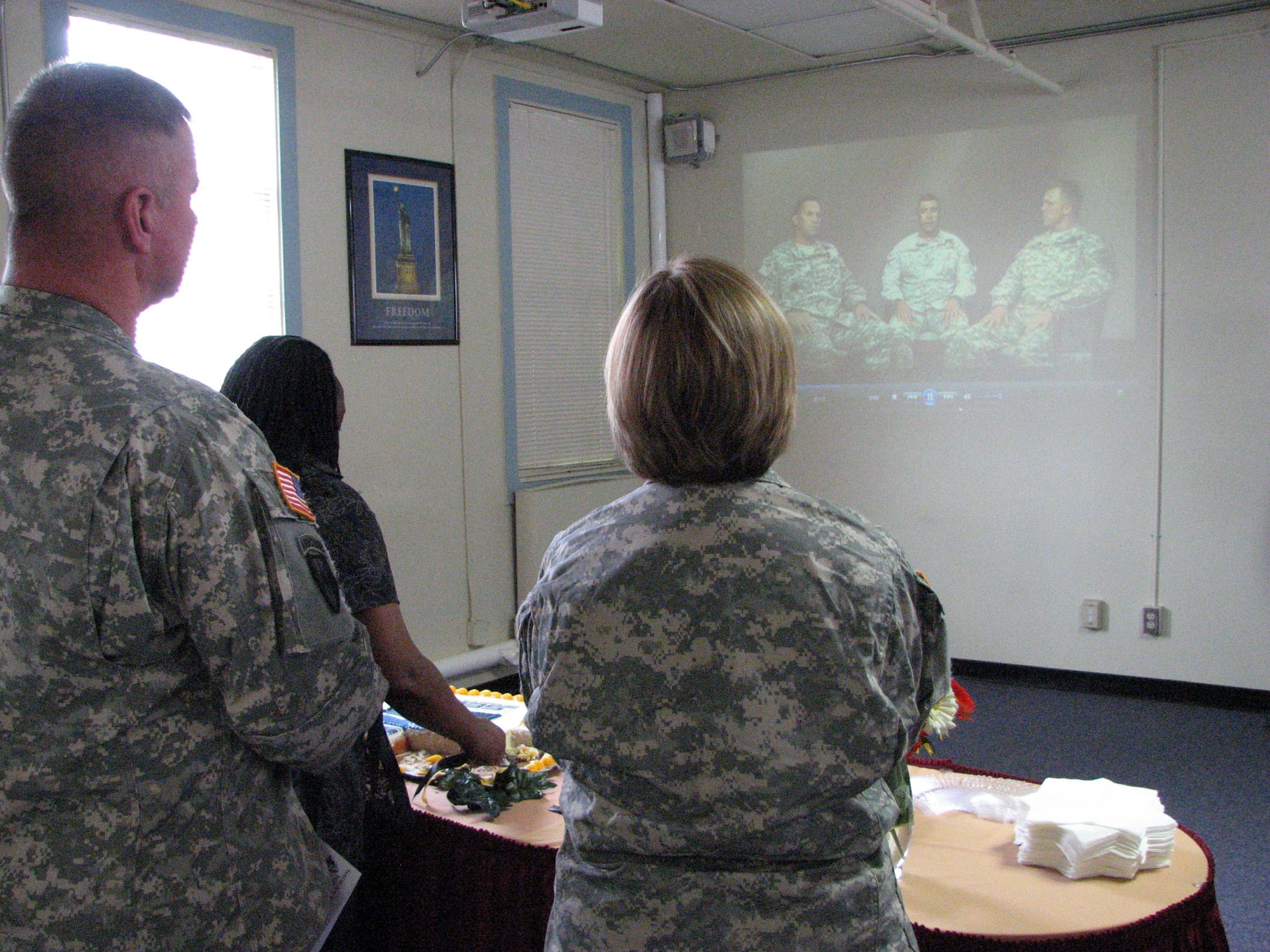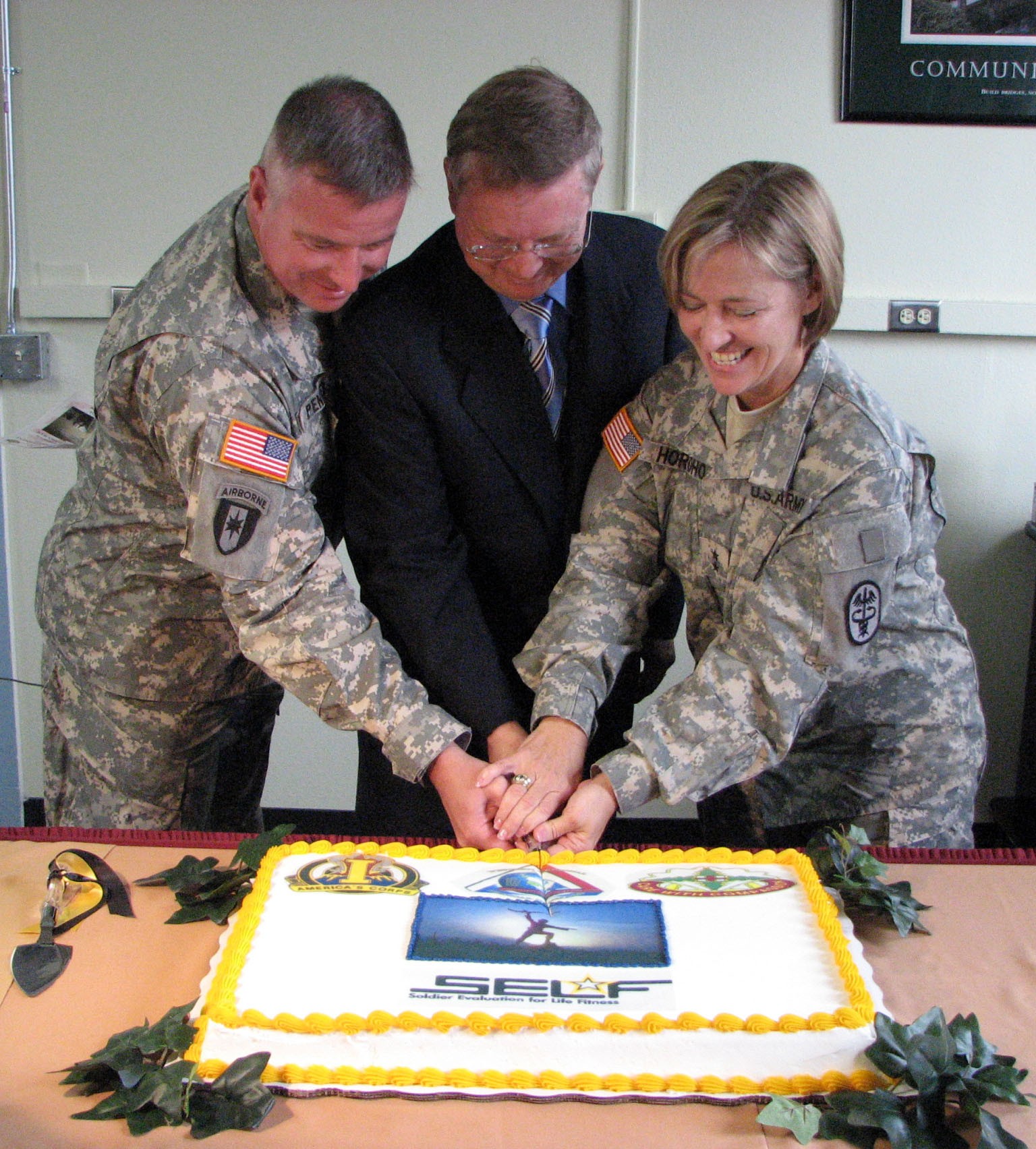Six years ago, Madigan Army Medical Center and Fort Lewis, Wash., proactively engaged in the development of a risk assessment program to screen Soldiers returning from deployment for suicide, depression and stress. Out of these developments, Madigan's Soldier Wellness Assessment Program was initiated in 2005 and was already evaluating Soldiers both pre- and post-deployment when the Department of Defense mandated that every returning Soldier be screened by a medical provider and behavioral health provider. Now, a further evolution of SWAP is strengthening the behavioral health focus and demonstrates noteworthy improvements to the program's curriculum.
The new initiative, called Soldier Evaluation for Life Fitness, is a post-deployment screening tool that evaluates the physical, mental and spiritual health of every returning Soldier. The program works in conjunction with the Army's Periodic Health Assessment program, which requires Soldiers to have an annual physical exam and regularly see a provider to evaluate their deployability.
One of the most innovative changes to the SELF program involves a powerful video each Soldier views at the beginning of the assessment. It begins with a commander addressing the Soldiers, and then transitions to personal experiences of three different Soldiers.
"(Soldiers) hear from other Soldiers regarding the real concern that they faced following their return, and the opportunity to address those challenges through the SELF program," said Maj. Gen. Patricia D. Horoho, commander of the Western Regional Medical Command. "The program's changes work toward the goals of decreasing behavioral health stigma, increasing its focus on life fitness, providing actionable reports for the commander and preparing the program for exportability."
SELF also addresses improved behavioral health information technology through a more comprehensive computer evaluation and a face-to-face encounter with a behavioral health professional immediately after their computer assessment.
"The team sought to provide a program that is not only a more robust, in-depth assessment for the Soldier, but also an opportunity for every single Soldier to sit down and review those results with a behavioral health specialist," Horoho said.
According to Dr. John Meyer, the director of Health Outcomes Management at Madigan who was involved in the inception of the initial SWAP program, 41,000 Soldiers at Fort Lewis have completed a post-deployment assessment and 16,000 referrals have been made for additional medical or behavioral health treatment beyond what is provided through SELF.
"It's been very thrilling for us to watch this process," Meyer said. "Madigan and Fort Lewis have always been forward thinking. They are proactive. What we're about to see now in SELF is the ongoing process of change."
Addressing the individuals gathered at the ribbon cutting ceremony, Horoho expressed gratitude to all of those involved in making SELF a "best practice" model for the Army.
"Madigan Army Medical Center is the spirit and the home of innovation. What you do here today is leading changes across not only the Army, but the Department of Defense," Horoho said.
The SELF program has been in place at Schofield Barracks in Hawaii since May 2009 and will expand to another Army installation in 2010.




Social Sharing